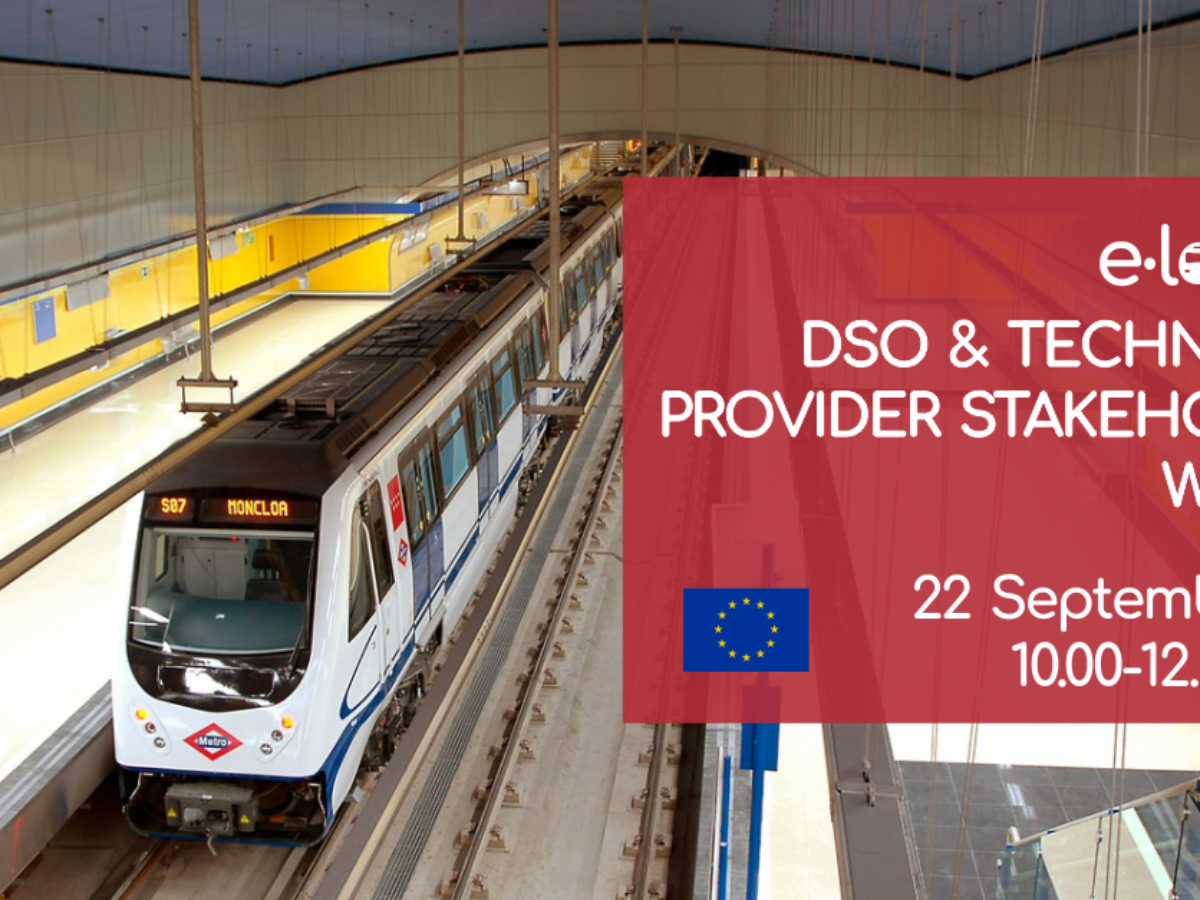E-LOBSTER presented at the Workshop “Innovation in energy management: Contribution of the railway sector to a sustainable mobility”
The E-LOBSTER Project has been presented to an audience of 120 participants at the Workshop “Innovation in energy management: Contribution of the railway sector to a sustainable mobility” organised by the Spanish Railways Technological Platform and the rail infrastructure manager ADIF on the 12th and 13th of May 2021.
Rodrigo Herrero, from Metro de Madrid, provided an overview of the project, information on the results achieved so far and the challenging next steps that include the pilot of the project, to take place on the beginning of 2022 at the facilities of Metro de Madrid.
The two-day workshop identified key challenges that the railway sector must tackle to contribute to a sustainable and energy efficient mobility. The contribution of the railway sector, as a backbone of European’s multimodal transport sector, is of great relevance in the framework of the Green Deal, the Sustainable and Smart Mobility Strategy and the European Year of Rail 2021. This is aligned with the strategy of safe&secure, sustainable and connected mobility 2030 Strategy of the Spanish Ministry for Transport, Mobility and Urban Agenda.
This is a great example on how European Rail Research (E-LOBSTER Project has been funded by the Horizon 2020 Programme of the European Commission under the GA 774392 ), and National R&D funding join forces to find synergies for a more efficient railway sector.
The Spanish Railways Technological Platform is an industry-led tool at the service of the railways sector, financed by the Spanish Ministry for Science and Innovation, set up to define a “long-term vision” and the “Strategic Research Agenda”, with the aim of achieving the scientific and technological advances required to ensure the competitiveness, sustainability and growth in the Spanish railway sector. It counts with more than 490 members from the Spanish Rail R&D community, of which 69% are companies, 4% railway managers and operators, 8% universities, 11% research and technology centres, 2% public administrations, and 5% foundations and associations.

More information on the event can be consulted here (available in Spanish):


